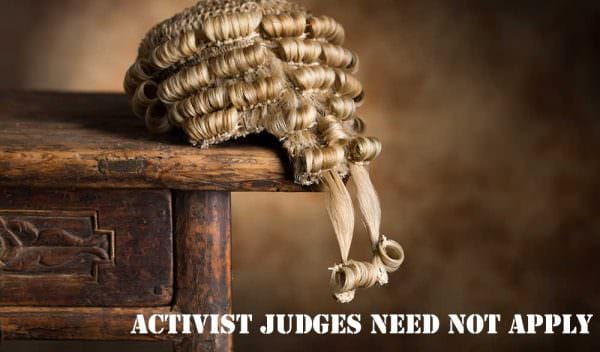Opinion

Five years ago, the Harris County, Texas, Institute of Forensic Sciences sent me reports on the autopsies of two people who had been killed in a Houston drug raid. After I wrote an article based on those reports, the county attorney’s office told me they were not public information because they were part of an ongoing investigation.
Although I did not realize it at the time, I had committed a felony just by asking for that information. You might think a law that criminalizes journalism is obviously unconstitutional. But if so, you are wrong, according to a decision that the U.S. Court of Appeals for the 5th Circuit issued last week.
The case involves Priscilla Villarreal, a Laredo, Texas, gadfly and DIY journalist who was arrested in 2017 for violating Section 39.06(c) of the Texas Penal Code. Under that law, a person who “solicits or receives” information that “has not been made public” from a government official “with intent to obtain a benefit” commits a third-degree felony, punishable by two to 10 years in prison.
Villarreal allegedly did that by asking Laredo police officer Barbara Goodman about a suicide and a fatal car crash. Goodman confirmed the name and job of a U.S. Border Patrol employee who had jumped off a Laredo overpass and the last name of an accident victim. Villarreal included that information in reports on her locally popular Facebook page.
Texas defines “benefit” as “anything reasonably regarded as economic gain or advantage.” According to the arrest affidavits, the “benefit” that Villarreal sought was a boost in Facebook traffic.
Section 39.06(c) defines “information that has not been made public” as “any information to which the public does not generally have access” that is also “prohibited from disclosure” under the Texas Public Information Act. The arrest affidavits did not address the latter requirement at all.
Although this law has been on the books for more than two decades, no one has ever been convicted under it. Nor had Laredo police ever charged anyone with violating it.
After a Texas judge blocked Villarreal’s prosecution, deeming the statute unconstitutionally vague, she filed a federal lawsuit against the officers who were involved in her arrest, arguing that they targeted her because they were irked by her vocal criticism of local law enforcement agencies. She noted that several cops had mocked her after the arrest, laughing while snapping pictures with their cellphones.
A federal judge dismissed Villarreal’s lawsuit after concluding that the officers were protected by qualified immunity, which allows federal civil rights claims only when they allege misconduct that violated “clearly established” law.
A 5th Circuit panel overruled that decision in 2021.
“Priscilla Villarreal was put in jail for asking a police officer a question,” Judge James Ho wrote. “If that is not an obvious violation of the Constitution, it’s hard to imagine what would be.”
After rehearing the case, nine of Ho’s colleagues disagreed, ruling that the officers had probable cause to arrest Villarreal and that the law was not so blatantly unconstitutional that they should have recognized it was inconsistent with the First Amendment. The majority faulted Villarreal for using a “backchannel source,” a routine reporting practice that has exposed abuses such as Watergate, the My Lai massacre, Vietnam War deception, and torture at the Abu Ghraib prison.
Seven judges dissented. They noted that Laredo police had spent months investigating Villarreal — a far cry from the “split-second judgments” to which qualified immunity supposedly applies.
“If the First Amendment means anything,” Ho wrote, “surely it means that citizens have the right to question or criticize public officials without fear of imprisonment.”
The Foundation for Individual Rights and Expression represented Villarreal, who drew support from ideologically diverse groups, including press associations, the Institute for Justice, the Cato Institute, the Constitutional Accountability Center, the Electronic Frontier Foundation, Project Veritas, and Young America’s Foundation.
Unlike the 5th Circuit majority, they recognized the perils of treating journalism as a crime.
About Jacob Sullum
Jacob Sullum is a senior editor at Reason magazine. Follow him on Twitter: @JacobSullum. During two decades in journalism, he has relentlessly skewered authoritarians of the left and the right, making the case for shrinking the realm of politics and expanding the realm of individual choice. Jacobs’ work appears here at AmmoLand News through a license with Creators Syndicate.





will she seek cert with scotus on this obvious violation of her First Amendment right as a citizen journalist?
will the cop who gave her the information be prosecuted for disclosing that information? seems like there might just be a two tiered justice system being applied.
You think that there Might be??!!
I will quote one G. Gordon Liddy…” When I Was A Kid, This Wa A Free Country.”
And he was wrong. Look into what Lincoln did to journalists, reporters, and editors who dared to question his policies on the south or the War of
Northern Aggression.
You mean the Civil War, of course. Who fired the first shot?
Had Lincoln followed CONSTITUTIONAL LAW there would have been no “Civil War”. He used the resupplying effort at Ft. Sumter to provoke a war, and he got one. That is what HE WANTED. Lincoln’s War, not a Civil War. All the south asked for was to be left alone. Lincoln COVETED the revenue lost by the southern states leaving to run the U.S. government MORE than peace and Constitutional Law. Filthy TAX DOLLARS. When you can successfully explain to us what the U.S. Government needed Ft. Sumter for after SC left the Union (a fort guarding Charleston from sea attack),… Read more »
Just when we though 5th circuit recognized rights and is one of few sane court circuits in the country.
Pick your party by which rights you want to keep. I want to keep all of them so cannot support either party.
Again? You won’t support no one no matter what party they are in? So you think that voting is all about supporting one party or the other? IMHO voting is about supporting anyone that has the same values as you do and someone who will protect the Constitution of our used to be great Republic.
It seems like the two parties pick certain rights to support and then proceed to pit one group’s pet rights against another group’s pet rights to keep us divided while they screw us all over.
Amen……
More judges who pick and chose what parts of the constitution they like.
Time to boot them
So, the Fifth Circuit seems to like guns. Journalists, and others who ask questions, not so much.
In a free country, we all are going to have, say and do things somebody doesn’t approve. This is why we need all the rights, all the time.
Texas is not the haven of freedom people make it out to be. Like all states, it has bad laws and bad policymakers.
Yes, I’ve seen some surprising results of court cases coming out of Texas.